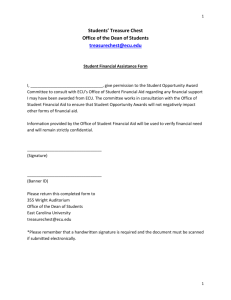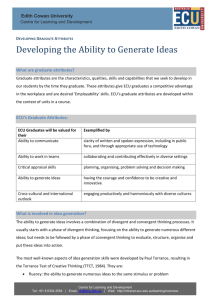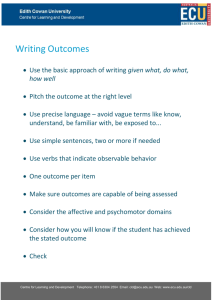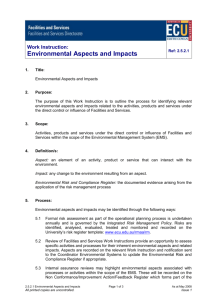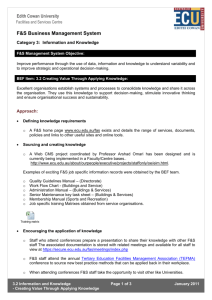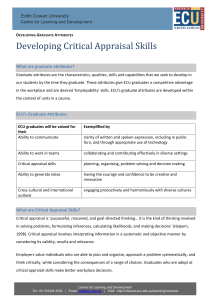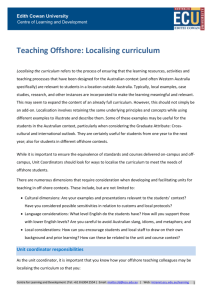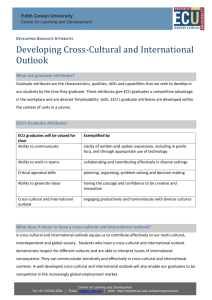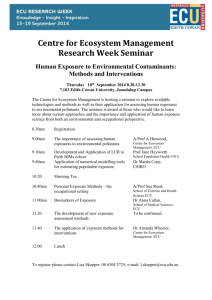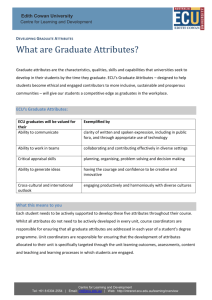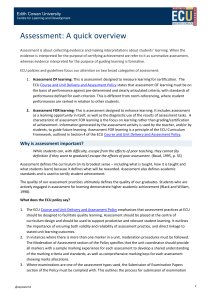Developing the Ability to Work in Teams
advertisement
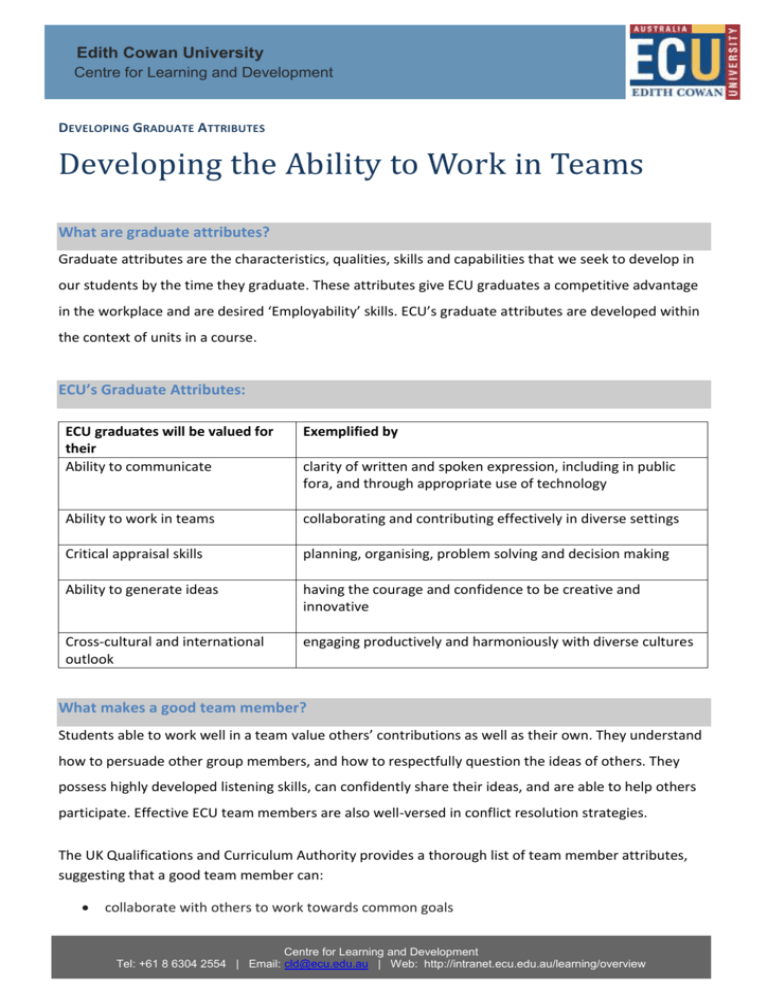
Edith Cowan University Centre for Learning and Development DEVELOPING GRADUATE ATTRIBUTES Developing the Ability to Work in Teams What are graduate attributes? Graduate attributes are the characteristics, qualities, skills and capabilities that we seek to develop in our students by the time they graduate. These attributes give ECU graduates a competitive advantage in the workplace and are desired ‘Employability’ skills. ECU’s graduate attributes are developed within the context of units in a course. ECU’s Graduate Attributes: ECU graduates will be valued for their Ability to communicate Exemplified by Ability to work in teams collaborating and contributing effectively in diverse settings Critical appraisal skills planning, organising, problem solving and decision making Ability to generate ideas having the courage and confidence to be creative and innovative Cross-cultural and international outlook engaging productively and harmoniously with diverse cultures clarity of written and spoken expression, including in public fora, and through appropriate use of technology What makes a good team member? Students able to work well in a team value others’ contributions as well as their own. They understand how to persuade other group members, and how to respectfully question the ideas of others. They possess highly developed listening skills, can confidently share their ideas, and are able to help others participate. Effective ECU team members are also well-versed in conflict resolution strategies. The UK Qualifications and Curriculum Authority provides a thorough list of team member attributes, suggesting that a good team member can: collaborate with others to work towards common goals Centre for Learning and Development Tel: +61 8 6304 2554 | Email: cld@ecu.edu.au | Web: http://intranet.ecu.edu.au/learning/overview Edith Cowan University Centre for Learning and Development reach agreements, managing discussions to achieve results adapt behaviour to suit different roles and situations, including leadership roles show fairness and consideration to others take responsibility, showing confidence in themselves and their contribution provide constructive support and feedback to others How do I develop this attribute in my students? Team work and collaboration skills need to be explicitly taught, practiced and assessed in units in every course. Below are some ways to include the ability to work in teams in your teaching: Provide time in class for students to work in teams, and encourage them to reflect on their performance (remind them to focus on the process, not the content) Regularly change groupings so that students learn to work with a diverse range of people Examine the team-building and conflict resolution processes of an organisation within your discipline and use the results to develop students’ own teamwork skills Set group work and collaborative assessments with metrics for cooperation and participation and structure the groups for diversity Encourage teams to do a ‘team skills assessment’ at the start of a project to help them identify appropriate roles and responsibilities for each team member Explore the use of ICT-based collaborative learning tools like wikis, on-line chat or Adobe Connect Pro When developing this attribute, it is important to make sure you provide clear rubrics for assessing team work skills so that students know what is expected (e.g. listening, questioning, persuading, respecting, helping, sharing, participating, etc). The HERDSA guide on Managing Student Teams by Caspersz, Skene & Wu (2007) contains some useful copyright-free resources to assist in creating team work tasks, as well as some valuable guidelines for ensuring effective teamwork. The guide suggests that teachers: promote a positive attitude to teamwork as a learning tool explain how students can benefit from a team project allow time for a ‘pre-team formation’ stage Centre for Learning and Development Tel: +61 8 6304 2554 | Email: cld@ecu.edu.au | Web: http://intranet.ecu.edu.au/learning/overview Edith Cowan University Centre for Learning and Development monitor team progress facilitate effective teamwork by ensuring students have ‘team time’ ensure fairness in assessment between individual and team marks facilitate awareness and development of skills to manage diversity amongst team members Where can I learn more about ECU Graduate Attributes? If you’d like to learn more about including ECU’s graduate attributes in your teaching, or any of the points outlined in this fact sheet, you can: Look out for Professional Development opportunities (all teaching staff are introduced to the Graduate Attributes in PDC 111); Read the examples included in the Curriculum Framework Examples booklet; and Contact the Centre for Learning and Development for advice. Recommended reading Caspersz, D., Skene, J. & Wu, M (2007). Managing Student Teams. Milperra, NSW: Higher Education Research and Development Society of Australasia. Gross Davis, B. (1993). Tools for Teaching. San Francisco: Jossey-Bass Publishers. Hargie, O. (2006). The Handbook of Communication Skills. London: Routledge Harper, S. R., & Quaye, S. J. (Eds.). (2009). Student engagement in higher education: Theoretical perspectives and practical approaches for diverse populations. New York: Routledge. Isaacs, G. (2002). Assessing group tasks (Teaching and Learning in Higher Education Series). The University of Queensland, Brisbane. Qualifications and Curriculum Authority (2007). Personal Learning and Thinking Skills Framework. London: QCA. Centre for Learning and Development Tel: +61 8 6304 2554 | Email: cld@ecu.edu.au | Web: http://intranet.ecu.edu.au/learning/overview
